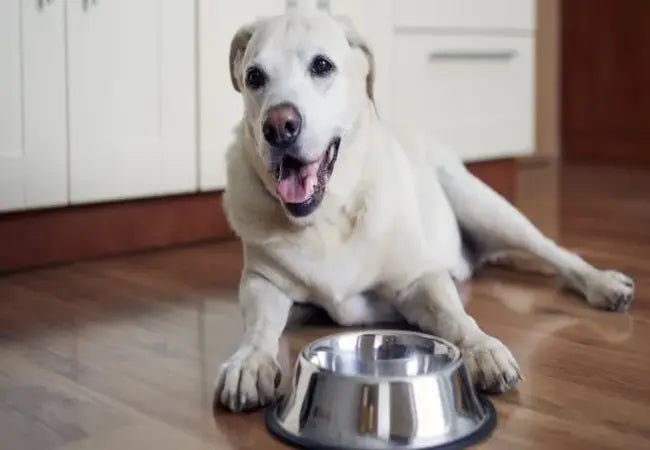Why Your Dog Is Always Hungry: Veterinary Insight & Care Tips 2025 🩺🐾

In this article
Why Your Dog Is Always Hungry: Veterinary Insight & Care Tips 2025 🩺🐾
By Dr. Duncan Houston BVSc
Hello! I’m Dr Duncan Houston BVSc, veterinarian and founder of Ask A Vet. If your dog seems insatiable—begging, scavenging, or willingly skipping walks for food—there could be more at play than puppy eyes. In this 2025 guide, we’ll explore appetite hunger vs polyphagia (pathologic hunger), covering causes, diagnostics, treatments, behavior support, nutrition tweaks, and how Ask A Vet can help. Let’s dive in! 🐶💙
1. 🧬 Physiologic Hunger vs Pathologic Polyphagia
Many dogs gobble everything offered—but that's not always a flag. Polyphagia means true excessive hunger beyond normal appetite, often linked to illness. Dogs with polyphagia may drink and pee more, lose weight, or even vomit despite constant eating.
2. Common Causes
2.1 Inadequate Nutrition or Overexertion
- Poor diet quality or imbalanced nutrients cause dogs to feel hungry despite eating.
- High-energy dogs—working dogs, sporting breeds, pregnant or growing pups—need more calories.
2.2 Behavioral Triggers
- Boredom, stress, anxiety, or learned begging can mimic hunger.
- Making healthy food a game or training reward can redirect this behavior.
2.3 Medications
Steroids like prednisone boost appetite dramatically—common side effect in many pups.
2.4 Endocrine & Metabolic Disorders
- Diabetes mellitus: classic “3 Ps” — polyphagia, polydipsia, polyuria. Dogs eat but often lose weight.
- Cushing’s disease: Excessive cortisol drives appetite, unintentional weight gain, or hunger pattern changes.
- Hypothyroidism: usually linked to low appetite, but metabolic imbalance may sometimes alter hunger levels.
- Pancreatic insufficiency (EPI): food isn’t absorbed—the dog stays hungry but loses weight.
2.5 Gastrointestinal Problems
Conditions like IBD or malabsorption cause increased appetite, along with diarrhea, vomiting, and bloating.
2.6 Parasitic Infections
Worms like hookworms steal nutrients, triggering persistent hunger.
2.7 Cancer or CNS Disorders
Tumors or neurologic issues can disrupt hunger regulation—often tied to other signs like weight changes or neurological deficits.
3. 🔍 When to Worry
- Sudden appetite surge.
- Constant hunger with unplanned weight loss or gain.
- Increased thirst, urination, lethargy, vomiting, diarrhea.
Any polyphagia with other symptoms needs veterinary evaluation.
4. Diagnostic Steps
- Physical exam: body condition, palpation, hydration status.
- Blood tests: CBC, biochemistry, glucose, thyroid, cortisol.
- Urinalysis: check for sugar (diabetes) or infection.
- Fecal exam: rule out parasites.
- P/E tests: cPLI for pancreatitis; imaging for masses or GI issues.
5. Treatment & Management
5.1 Nutrition Optimization
- High-fiber foods help satiety—especially in seniors or bored dogs.
- Balance macronutrients: quality protein, healthy fats, limiting empty calories.
- Feed multiple meals per day to spread calories.
5.2 Behavioral Solutions
- Use puzzle feeders or slow feeders to prolong mealtimes.
- Exercise mental and physical stimulation to curb boredom hunger.
5.3 Medical Treatment
- Diabetes: insulin therapy stabilizes hunger, thirst, and weight.
- Cushing’s: medications like trilostane or mitotane regulate cortisol.
- EPI: pancreatic enzyme supplements restore digestion.
- Parasites: regular deworming protects against nutrient loss.
- GI conditions: treat IBD or cancer—may involve diet changes or surgery.
5.4 Medications Review
- Discuss steroid side effects—can we taper the dose or switch?
6. 🏡 Home Support Tools
- Ask A Vet: telehealth consults for sudden appetite changes, support during diagnostics, and guidance on management plans.
7. 📆 Monitoring & Follow-up
- Track weight weekly and body condition score monthly.
- Log hunger, thirst, bathroom, and activity in Purrz.
- Repeat diagnostics after initiating treatment to gauge response.
8. 🏥 When to See the Vet Immediately
- Hunger plus weight loss and increased thirst/urination.
- Vomiting, diarrhea, vomiting blood, or lethargy.
- Signs of pain, bloating, or abnormal stool.
- New nervous signs like disorientation.
9. ✅ Final Thoughts
Persistent hunger in your dog may be more than simple greed—it’s your body’s way of asking for help. While most true polyphagia cases are doable with structured nutrition, behavior strategies, and medical correction, timely diagnostics are key. With Ask A Vet guidance tracking, you can nurture a healthy hunger and a healthier pup in 2025. 🐾💙
Is your dog always hungry? Start with a telehealth check at AskAVet.com, build structured meals and enrichment. Together we’ll help your dog thrive on the right appetite—just not TOO much! 🌟






